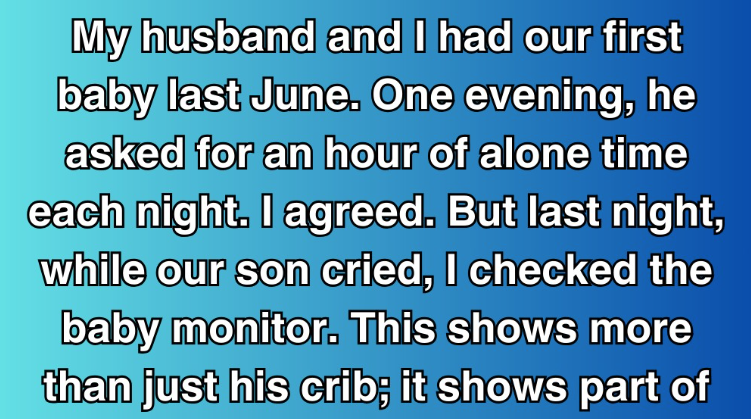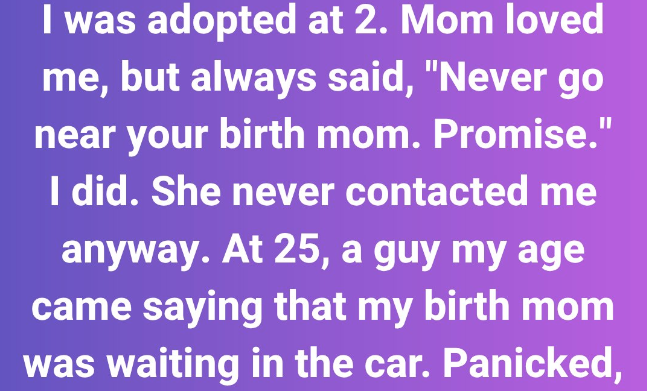My mom married Tom when I was 11, not long after my dad passed away. Tom had two sons, Ethan and Cole, both a few years older than me. From the beginning, they were his pride and joy, while I was the “add-on.”
Tom wasn’t mean, just distant. He smiled at me like I was a polite guest who overstayed her welcome.
Most family dinners revolved around Ethan’s soccer tournaments and Cole’s academic awards. I was there, but I rarely felt seen. My mom tried to balance things out, but Tom’s focus never shifted. I kept my head down, finished school, and by the time I hit 19, I moved out and slowly drifted from that part of my family.
Years passed. I built my life, married someone kind, and kept a respectful distance. When my mom passed, I saw Tom briefly at the service, and then we lost touch altogether.
Fifteen years later, I got a call out of nowhere from Tom’s attorney. Tom had passed. The surprise? He’d left me his $2.3 million lakehouse up north. Ethan and Cole? Just $5,000 each.
I thought it was a mistake. But the will was clear, official, and final.
The reactions came fast and loud. Ethan called, furious, demanding answers. Cole posted a passive-aggressive rant about “greedy outsiders” on social media. Extended relatives whispered about how I must’ve schemed my way into Tom’s will. But the truth? I hadn’t spoken to Tom in over a decade.
Confused and a little shaken, I drove to the lakehouse, thinking maybe something there would explain this bizarre turn.
The place was peaceful, untouched, like a frozen piece of the past. I walked through every room looking for clues. It wasn’t until the third day that I found a small key hidden behind a photo frame of him and my mom. It opened a locked drawer in the study.
Inside was a single envelope with my name on it.
“Dear Jenna,
I don’t expect you to forgive me, but I do hope you understand.
I watched from a distance as you grew up. I saw your quiet strength, your independence, and how you never once asked for more, even though you deserved it. You reminded me so much of your mother—graceful, steady, and kind.
I realize now that I failed you. I was so busy trying to be a good father to my sons that I ignored the daughter who needed one too.
This house was your mother’s favorite place. She once told me she wanted you to have it one day. I never listened… until now.
This isn’t just a gift—it’s my apology.
—Tom”
I sat on the old leather chair in the study, just letting the words sink in. I hadn’t cried at the news of Tom’s death, but reading that letter broke something open in me. For so long, I’d buried the quiet ache of being overlooked, pretending it didn’t matter. And now, here it was—acknowledged.
I spent the next few weeks at the lakehouse, slowly putting things in order. I cleaned out closets, aired out rugs, and even patched up a broken section of the deck. The quiet there healed me in a way I didn’t know I needed. My husband, Marco, came up on weekends and fell in love with the lake too.
Then came the letter from Ethan’s lawyer. A formal request to challenge the will.
Apparently, Ethan and Cole believed I’d manipulated Tom in his final years—somehow convinced him to leave me the property instead of them. It was ridiculous, but they had money for legal fees, and I guess old resentments run deep.
The court asked for any documentation, letters, or witness testimonies to support Tom’s state of mind. I submitted the letter he wrote me. It helped, but Ethan and Cole weren’t backing down.
I found myself spending hours trying to figure out what to do. I didn’t want a legal battle. But I also wasn’t going to give up something my mother had loved and that Tom—finally—had given me freely, without guilt or strings.
Then, something unexpected happened.
While cleaning out a storage bench on the porch, I found a stack of old VHS tapes labeled in my mom’s handwriting: “Lakehouse Summers.” I borrowed an old player from a neighbor and spent one rainy evening watching them.
There she was—my mom—laughing, swimming, brushing my wet hair by the water’s edge. And there was Tom too, smiling in a way I barely remembered. What caught me off guard was the date on one of the tapes: the summer I turned twelve. In it, my mom and Tom were sitting on the dock. My mom turned to the camera and said, “If anything ever happens to me, promise me Jenna gets this place. She loves it as much as I do. Promise me, Tom.”
And clear as day, Tom replied, “I promise.”
I froze the screen and stared at it.
This wasn’t just sentiment. It was proof.
My lawyer lit up when I showed her the footage. “This changes everything,” she said.
In court, the tape was submitted as evidence. The judge watched the clip. Ethan’s lawyer tried to argue it was outdated, but the judge saw the intent. Between the letter and the tape, Tom’s wishes were clear.
The will stood. The lakehouse stayed mine.
But even after the ruling, I couldn’t shake the tension that lingered. Ethan and Cole cut all ties. They didn’t even respond to a note I sent, offering to meet and talk. It stung, but I reminded myself they’d always seen me as an outsider. Maybe now they saw me as a threat too.
Two months later, I was back at the lakehouse for the fall. The air was crisp, and the trees were golden. One morning, I heard a knock on the door.
It was Cole.
He looked tired. Older than I remembered. His hands were stuffed in his coat pockets, and he avoided eye contact.
“I’m not here to argue,” he said. “I just… I found something. Thought you should have it.”
He handed me a small leather notebook. “Dad used to write in this sometimes. I found it in a box at my place.”
He paused. “The last few pages are about you.”
After he left, I sat on the porch swing and flipped through it. Tom’s handwriting was uneven but familiar. The last entries were raw. Regrets. Memories. In one, he wrote about the day I left for college, how he watched from the upstairs window but couldn’t bring himself to say goodbye because he felt he hadn’t earned the right.
Another entry read, “Jenna never asked me for anything. Not once. But she gave this house life, even when I didn’t deserve it.”
I cried again.
But this time, the tears were different. Softer.
That winter, I decided to turn the lakehouse into something more than just a getaway. With Marco’s help, we turned it into a retreat space—quiet weekends for writers, artists, or just people who needed to breathe. We kept the warmth of the place, the charm my mom loved. Every corner held her essence.
The first guests arrived in spring. One woman told me, “This place feels like a hug.” I smiled and knew my mom would’ve liked that.
To my surprise, Cole started visiting from time to time. Quietly at first. He helped fix the boathouse roof, then stayed for dinner once. We talked more. About our moms, our childhoods, and what it felt like to grow up with unspoken wounds.
Ethan never came around. But one day, I received a letter. It was short, scrawled in messy handwriting.
“I don’t understand why he chose you. But maybe he was trying to do one thing right. For what it’s worth, I hope you take care of the place. He really did love it. —E.”
I didn’t expect anything more. And that was okay.
Years later, I still sit on the dock in the early mornings, coffee in hand, watching the mist lift from the lake. Guests come and go, each leaving a piece of their story behind. The house lives on. Loved. Full.
Tom couldn’t undo the past, but he gave me something powerful in the end—recognition. A place that wasn’t just walls and windows, but a promise finally kept.
Funny how life circles back sometimes. How the quiet child, overlooked and underestimated, ends up exactly where she was meant to be.
So here’s what I’ve learned: not all apologies come in time, and not all healing is loud. But when it comes, even late, it matters. And sometimes, the ones who watched you quietly are the ones who saw you the most.
If this story touched you, share it with someone who needs to know that being kind, even when unseen, is never in vain. Sometimes, closure doesn’t come with noise—it comes with a key, a letter, and a quiet place by the water.




